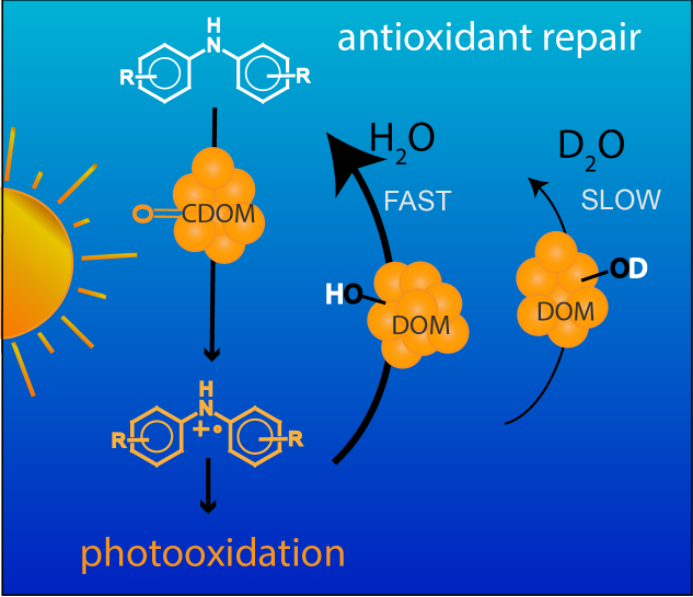Newly discovered non-singlet oxygen kinetic solvent isotope effects
Caroline Davis has a new paper in Environmental Science & Technology on the newly discovered non-singlet oxygen kinetic...

Caroline Davis has a new paper in Environmental Science & Technology on the newly discovered non-singlet oxygen kinetic solvent isotope effect important for the determination of a compound’s reactivity with singlet oxygen. Traditionally, reactivity of a pollutant with singlet-oxygen is demonstrated by faster degradation kinetics in heavy water (D2O) vs. H2O, due to longer lifetimes and therefore higher steady-state concentrations of the highly reactive oxygen species in D2O. This work demonstrates that antioxidant-mediated repair mechanisms also proceed slower in D2O, resulting in faster degradation kinetics in D2O as well. Understanding this additional effect avoids overestimations of a compound’s reactivity with singlet oxygen.
Non-Singlet Oxygen Kinetic Solvent Isotope Effects in Aquatic Photochemistry
Caroline A. Davis, Kristopher McNeill, and Elisabeth M.-L. Janssen*
Environ. Sci. Technol. 2018 https://pubs.acs.org/doi/10.1021/acs.est.8b01512
